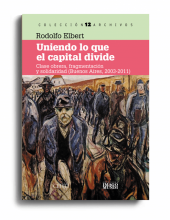CfP: 56th ITH Conference Migration Worldwide: Left-wing Strategies, Migrant Actors and Capitalist Interests from the Sixteenth Century to the Present
Linz/Upper Austria, 23-25 September 2021
Conference languages: German / English
CfA: Colonial Co-operation in Africa, 1900-1960
Supervisory team: Dr John Slight (The Open University) and Lucy McCann (Bodleian Libraries)
Applications are invited for an Open-Oxford-Cambridge AHRC DTP-funded Collaborative Doctoral Award at The Open University, in partnership with the Bodleian Libraries, Oxford.
La medicina del lavoro nel XX secolo. Il caso italiano nel contesto internazionale
Nel difficile contesto attuale la SISLav promuove momenti di riflessione su tema della salute sul posto di lavoro. Tra queste segnaliamo il convegno di studi dedicato a La medicina del lavoro nel XX secolo.
Swansea Copper: A Global History - Book Launch
During the eighteenth century, a revolutionary new ‘Welsh process’ of efficiently smelting copper led to Swansea becoming the epicentre of the global copper industry. Indeed, between the 1770s and the 1840s, the Swansea district routinely produced one-third of the world’s smelted copper and occasionally exceeded this proportion. It’s this incredible transnational history that has provoked a ground-breaking new study from Chris Evans and Louise Miskell.
CfA: Early Career Fellowships - Special Collections University of Manchester Library
Fellowships are available for early career academics to develop an application for an externally funded postdoctoral fellowship (for example, through the British Academy or Wellcome Trust) to undertake a future research project using the Special Collections held in the University of Manchester Library. The purpose of the awards is to allow academics unfamiliar with either archival research or the rich holdings of The University of Manchester’s Special Collections the opportunity to identify areas of particular research promise.
Uniendo lo que el capital divide. Clase obrera, fragmentación y solidaridad (Buenos Aires, 2003-2011), by Rodolfo Elbert
La Colección Archivos. Estudios de historia del movimiento obrero y la izquierda anuncia la salida de su duodécimo libro.
Uniendo lo que el capital divide. Clase obrera, fragmentación y solidaridad (Buenos Aires, 2003-2011), de Rodolfo Elbert
Del Prólogo de Michael Burawoy:
Seminário Internacional virtual Migrações e cidades nas Américas
Programação
terça, 24 nov
10 h
Conferência de abertura
Prof.ª Dr.ª Carmen Norambuena (Universidade de Santiago de Chile)
“Plan Humanitario de Retorno : un proyecto fallido. Chile 2018-2020”
terça, 24 nov
14 às 17 h

